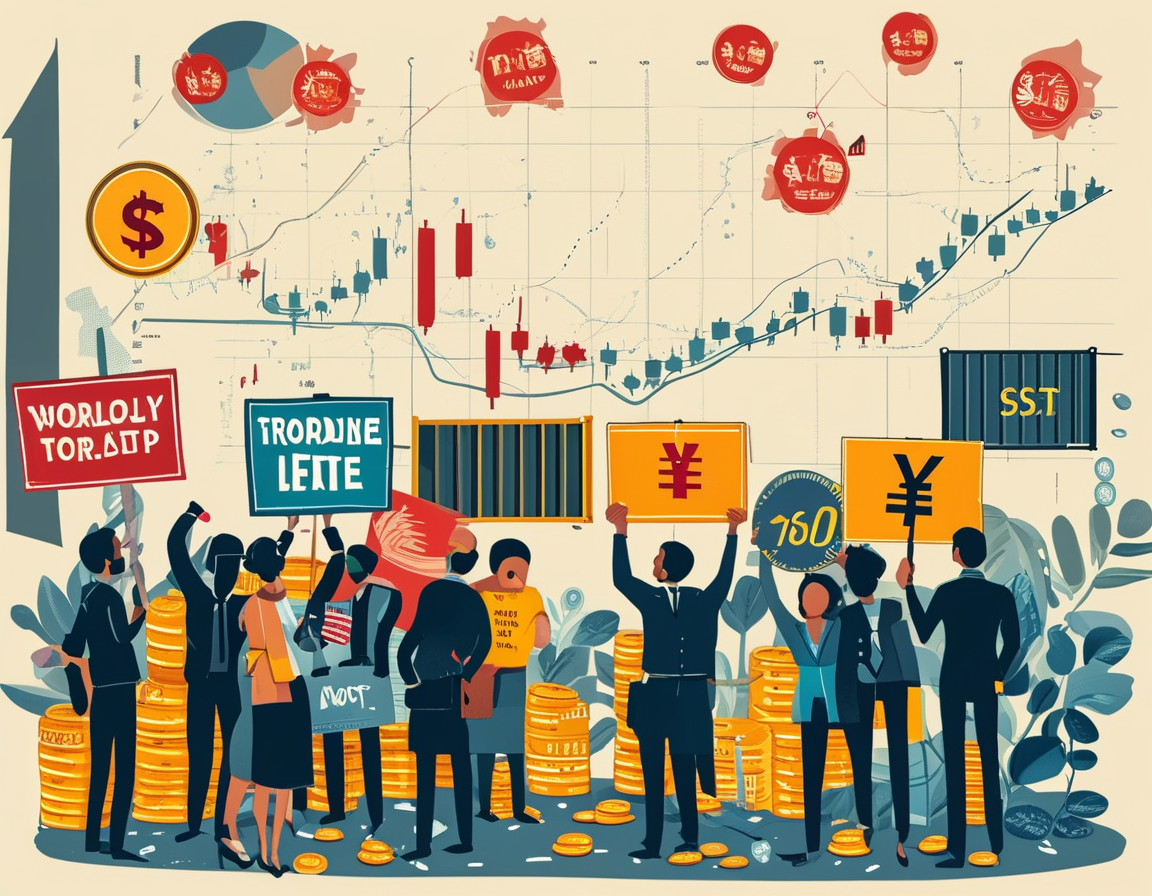
In a bold proclamation, President Donald Trump defended his sweeping tariffs on imports, calling it necessary medicine. He argued that this approach would spark job creation and rejuvenate investment within the United States. But how do these tariffs affect the everyday American?
Trump’s remarks came during a flight aboard Air Force One. He expressed optimism about America’s economic future. ‘Sometimes you have to take medicine to fix something,’ he stated. Still, many are left wondering: at what cost?
The immediate impact was felt dramatically in global markets. Stock markets across Asia responded with steep declines. Japan’s Nikkei fell by nearly 8%. In Hong Kong, the Hang Seng plummeted by over 12%. These are not just numbers; they reflect real concerns about economic stability.
Back home, the news wasn’t better. Just days before, all three major US stock indexes faced significant losses. The S&P 500 experienced a drop of almost 6%. It was the worst week for the US stock market since 2020, leading many to question Trump’s approach to trade. Is this the medicine we need?
JP Morgan’s predictions added fuel to the fire. They estimated a 60% chance of recession on the horizon. Treasury Secretary Scott Bessent tried to ease concerns, insisting there was no reason for alarm. He called it an adjustment process. But how reassuring is that when the stakes feel so high?
Commerce Secretary Howard Lutnick echoed this sentiment. The baseline 10% tariff, he insisted, would remain in place. This meant a long road ahead. The talk of additional tariffs on “worst offenders” was just around the corner. Is this a path toward prosperity or a recipe for more economic pain?
Interestingly, reactions from other countries varied. While some showed restraint, like Indonesia and Taiwan, China was more aggressive. They announced a substantial 34% tariff on all US imports weeks after Trump’s decision. The global chess game of trade is now more intense than ever.
In the UK, Prime Minister Sir Keir Starmer highlighted the pressing global shifts. He warned that the familiar world is gone. He called for a delicate economic deal with the US to soften tariff impacts. Can countries work together to navigate this trade war, or are we just gearing up for a full battle?
Netanyahu’s visit to Washington for trade talks underscores the importance of these discussions. As he stated, this meeting emphasizes personal connections. But will personal diplomacy sway the outcomes in this complex landscape?
Protests erupted across the US over the weekend. Hundreds of thousands took to the streets in major cities. They voiced unease over Trump’s policies, which touch upon both social rights and economic stability. Are Americans finally waking up to their concerns about Trump’s agenda?
In the end, the question remains—are these tariffs the fix we need? Or are they simply a temporary bandage on a deeper wound? As markets ripple from the impact of these decisions, we can only hope for clarity and resolution in the storm ahead.
Leave a Comment